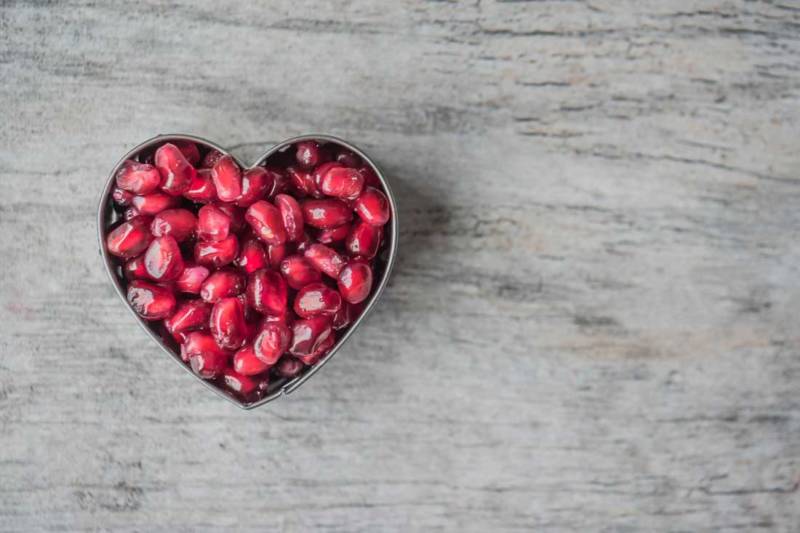
The importance of diet on your journey to physical wellness cannot be overlooked. Your diet, or the food you consume, has a big impact on your overall health. A healthy, balanced diet will help you feel great, have more energy, improve your outlook on life and stabilize your mood. There’s a lot of information and dieting advice available today. This information can often be conflicting or confusing for many people. In this section, we will give you several simple tips to cut the confusion and learn to create healthy diet that will benefit both your mind and your body. Here are the topics we’ll cover in this post:
- Read food labels
- Don’t diet without exercise
- Stay hydrated
- Prepare your own food with fresh ingredients
- Use moderation

Read food labels
The first step in creating a healthy diet is to know what exactly you are eating. It is important to be aware of what is in your food, as manufacturers often hide large amounts of sugar and salt in packaged food (even food claiming to be healthy!). Watch out for calories, sugar, sodium, and artificial ingredients on food labels. Instead, look for protein, healthy fats, fiber, iron and other vitamins and minerals.
If you aren’t sure what a food label is telling you, a good rule of thumb is to focus on how you feel after eating the food. The more healthy food you eat, the better you will feel after a meal. The more junk food you eat, the more likely you are to feel uncomfortable, nauseous, or drained of energy. This will help you create healthy new habits.

Don’t diet without exercise
Never go on a weight reduction diet without including exercise. Exercising helps you avoid the loss of muscle mass instead of body fat. Without exercise, you may end up losing weight without losing fat. If you are overweight and diet without exercise, you could simply become a lighter overweight person instead of the solid, trim person you want to become. Here are some tips for you to lose weight in a safe and healthy way:
- Eat vegetables and fruit to help you feel full.
- Write down everything you eat. Keeping a food journal will help you stay on track.
- Drink plenty of water.
- Get rid of tempting, unhealthy foods.
- Stay busy. Don’t eat just because you are bored.
- Eat only from a plate, while seated at a table.
- Don’t skip meals.

Stay hydrated
Drink plenty of water. Staying hydrated will help flush your system of waste products and toxins. Many people, however, go through life dehydrated—causing tiredness, low energy, and headaches–without knowing why they feel so badly. It is common to mistake thirst for hunger, so staying well hydrated will also help you make healthier food choices.

Prepare your own food with fresh ingredients
The next step in changing your habits is to create a well-balanced diet that includes all food groups. The best way to do this is to prepare your own food with fresh ingredients. By doing so, you control what you are eating and what you are putting into your body. This will help you be certain that the food you consume is good for you and will make you feel great. Here are two ways to do this:
- Make the right changes. When cutting back on unhealthy foods in your diet, it is important to replace them with healthy alternatives. Replacing processed foods with fresh vegetables. proteins and fruits will make a positive difference to your health.
- Cook meals at home. Cooking at home can help you take charge of what you are eating and better monitor exactly what goes into your food.

Use moderation
The key to any healthy diet is moderation. What do we mean by this? In essence, it means eating only as much food as your body needs. You should feel satisfied at the end of a meal, but not stuffed. Moderation is also about balance. Despite what fad diets would have you believe, we all need a balance of carbohydrates, protein, fat, fiber, vitamins and minerals to sustain a healthy body. Moderation does not mean eliminating the foods you love. Eating bacon for breakfast once a week, for example, could be considered moderation if you follow it with a healthy lunch and dinner, but not if you follow it with a box of donuts and a sausage pizza. Here are four tips to help you with moderation:
- Try not to think of certain foods as off-limits. You don’t need to cut out certain foods completely. That may just make you want them more! Instead, cut back on the amount of unhealthy food you are eating. Chances are that, in time, you will prefer healthy food to unhealthy choices.
- Think smaller portions. If you go out to eat you may want to order only an appetizer or choose to share a dish with a friend. A good rule of thumb is to eat until you are satisfied–not stuffed.
- Take your time. It actually takes a few minutes for your brain to tell your body that it has had enough food, so eat slowly.
- Eat with others whenever possible. Eating in front of the TV or computer often leads to mindless overeating. Eat at a table, and with other people if you can.
Thanks for tuning into our series on anxiety management, physical wellness and diet. If you’d like to learn more about the importance of stress management and how The Anxiety Management Program works, download our PDF brochure here.
